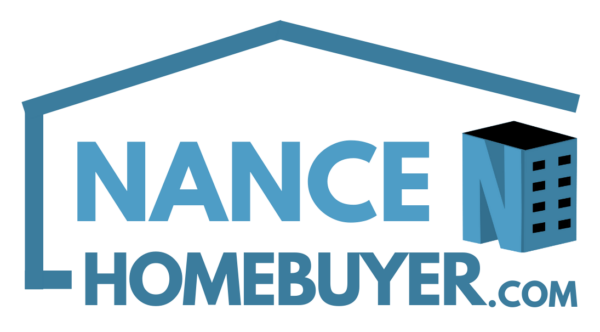
The timing of the sale of a house in Georgia could affect the goals a person has in mind and his/her finances. Figure out how long you should live in a house before selling and understand the profit, selling, tax, and lender obligations involved. In this case, ignoring timing could be the most expensive mistake a seller makes. This is why selling a house is one of the most important financial and personal decisions out there. The balance and focus of this guide by Nance Homebuyer is on timing aspects, rules, and advice concerning Georgia, along with planning tools that might ease the decision-making process. What you just read might be advanced – this is why, whether you’re a first-time seller or someone with a lifetime of experience selling homes, this guide has researched everything you would need. This guide has practical steps and well-elaborated information on selling your house in Georgia, or as you might say, the Peach State.
Key Highlights
- To avoid legal and monetary issues, house sellers in Georgia should consider capital gains tax regulations and lender requirements prior to selling their homes.
- Paying down a mortgage and making improvements to a home allows sellers to increase their equity, which makes selling a home more profitable and gives greater flexibility.
- And in Georgia, selling a home in the spring or early summer generally leads to quicker sales and higher selling prices.
- Real estate agents assist sellers in order to set a value to the house. They also help them streamline the process and enhance their negotiation power.
- Pricing, staging, and making the necessary repairs to sell the home, then make the sale a confident and profitable one.
Understanding the Minimum Time to Live in Your Home Before You Sell in Georgia

Properly selling a piece of property goes beyond simply adding it to a real estate listing– one must invest significant thought to this process, particularly how much time has been spent living on the property. The length of residence raises much concern when it comes to both the efficiency of the selling process, and its financial aftermath.
One of the key concerns is paying capital gains taxes. Georgia residents who sell their primary residence on the market without having occupied it for a duration of at least two years will be subject to taxation on the amount that they sell it for, unless certain IRS rules and regulations apply to them. Grasping this timeline allows for better financial planning. For those who need to move forward quickly regardless of timing, you can sell your home for cash in Atlanta or nearby cities, providing a faster and more flexible option.
Gains on the time spent on a house also influence the remaining closing costs, mortgage payments, and what lenders ask. These concerns can be alleviated through consultation with a realtor or financial services practitioner and will lead to enhanced financial choices in the context of protecting Georgia property and selling it.
Legal and Financial Implications of Selling Your Home Too Soon
Selling a home in Georgia soon after buying it can lead to financial loss as well as legal issues, such as capital gains tax. To avoid paying the federal capital gains exclusion tax, you must have lived in Georgia for at least two of the previous five years. If you had sold the property before the five years of ownership had lapsed, you would have had to pay tax on any profit earned, the selling price minus the purchase price, no matter the expenses involved in the sale. These expenses can include all closing costs, like repairs and improvements. In some cases, an immediate sale can result in closing costs as high as 10% of the sale price. If no cash equity has been established, these fees can total 10% of the sale price, eliminating any cash equity gained.
Georgia legal guidelines may not require a specific occupancy period prior to selling a home; however, your loan documents may stipulate differently. Some first-time homebuyer programs or low-rate mortgage loans may require that specific occupancy time frames be honored, with early selling triggering hefty repayment penalties or a loss of benefits. Similarly, mortgage payoff considerations are critical—selling a home too soon might not provide a profit after deducting the loan dues and fees owed. Loan documents and lenders, along with realtors, give strategies to circumvent unpleasant scenarios for homeowners.
Equally important are the owner-held property’s newly acquired tax implications. Prima facie, set tax exemptions on pending due capture, or in case of credits claimed before, swiftly adjusting the primary domicile may also set in motion proration bills alongside delinquent capture taxes. Creating a net sheet with total gains expected, alongside mortgages and servicing fees, provides a clearer picture. In conclusion, caution with employing real estate tax and interstate strategies with the help of consultants allows selling a home in Georgia after short occupancy to be seamless and not compromise the expected proceeds.
The Impact of Home Equity on Your Selling Timeline in Georgia

Being able to compute how your property equity impacts your timeline to close a sale is essential to achieving a successful sale in Georgia. For your property, equity is how much your property is worth minus how much you owe on the mortgage, so it directly impacts whether selling now will make a profit, break even, or lose money. Knowing your equity position helps to measure in what time frame it is advantageous to consummate a sale versus waiting to consummate a sale. This also ensures your investment is well protected.
With respect to retention strategy, you have to take into account how much the property is worth now, how much it has appreciated, how much equity you have in the property, and how much you have collateralized in difference. Still, a few additional measures, such as market dynamics, refinancing, and market season, also influence ease of sale. By taking these steps, a Georgia Homeowner can profit, avoid risk, and plan a sale based on desired equity and financial return.
Building Home Equity Before Deciding to Sell
The most valuable financial advantage of selling a house in Georgia is building home equity. Home equity— the value of the property less the outstanding mortgage— is gained over time as the mortgage is paid down and property values in the area increase. Strategic mortgage payments and equity growth can also be accelerated by refinancing to shorter terms and by home improvements such as kitchen upgrades, roofing, and landscaping. Having the proper equity position enables a homeowner to time the sale of the house in a manner that the selling price exceeds the closing costs, mortgage payoff, and other expenses to generate a decent gain.
Home improvements and market timing are the most critical factors in equity-building techniques. Not all upgrades are the same, and to maximize the increase in value, a Georgia realtor can help. Sometimes of the year and certain seasons can be much quicker to sell a house, and in Georgia, spring and early summer are the best. Homeowners have the ability to improve equity and buyer demand, creating a profitable sale.
Financial stability and planning are critical if one decides to sell. Equity ensures protection against market dips, high closing costs, and failure to negotiate strategically, all while providing absolute leverage with buyers. Positive refinance alternatives, whether cash-out for improvements or refinance to a shorter-term loan, also enhance one’s position with available equity. Georgia homeowners, with mortgages under management, capitalizing with equity improvements, and repo forces, perform better relative to sales. Defending one’s equity position articulately ensures control and a greater outcome with sales transactions while maintaining position with long-term esteemed properties.
Optimal Seasons and Market Trends for a Georgia Home Sale
As with all investments, the timing plays a critical role, and in real estate, especially in Georgia, synced movements and seasonal trends determine the fate of selling at the peak’s returns and equity. Throughout all ages of real estate, maximizers of the sale price and minimizers of days in the market have a much concentrated spotlight on real estate. Whether listing a home after years of equity, or in the market’s reaction phase, demand cycles and equity years will be crucial. Your market insight needs sharp accuracy on the state of Georgia trends and the hot periods of proximity in piqued interests for quicker closure of a sale versus bid satisfaction.
When Is the Most Advantageous Time to Sell Your Home?
The time of year that your home is listed for sale in Georgia is pivotal for determining the profit from the sale. Mid-March through June is when the selling season happens to be the busiest. Families strategically time their moves for the summer months so that their children can start school in the new school system. Parents want the children to have the best start to the school year possible. Schools generally open for new students in mid-August. Homes also have more appeal during the spring months. Georgia has mild and pleasant winters, but the home-selling market is much slower. Winter has a slower home-selling season. With fewer buyers in December and January, motivated buyers have more flexible terms for the sale. Apart from seasonality, the sale is influenced by interest rates, employment opportunities, and the rise in people moving to Georgia.
The internal market in Georgia has a significant impact on home sales. Atlanta, Savannah, and Augusta have enough buyers to sustain the real estate market year-round because of the strong economic growth in February. Georgia’s smaller markets have a severely lower demand in the summer months. The number of homes available also has a strong influence on negotiating power. While home buyers have the most negotiating power, home sellers get the most offers. Tracking the months of inventory, sale prices, and the average number of days a home is listed for sale gives an estimate for the optimal time to list a home. With the increasing demand for real estate, real estate agents with a deep knowledge of the local market are your best bet.
Ultimately, the alignment of preparation and timing is crucial to the success of the staging process, along with the maintenance of homes to accentuate their best aspects, which work more effectively, especially in competitive months when buyers have multiple properties to view. With the use of strategic improvements, targeted marketing tactics, and professional staging, your home will be highlighted above all others, no matter the season. August is the best month to combine the market data, trends, and geo data from agents in Georgia. This allows homes to be placed in the marketplace on the most optimal months in order to maximize the speed, price, and overall return on the sale. For sellers who prefer a faster, hassle-free option instead, you can sell your home for cash in Marietta or nearby cities, skipping repairs and lengthy staging altogether.
Preparing Your Property for an Effective Home Sale in Georgia

Having scheduled your Georgia sale and paired with reliable agents, the next step addresses your property’s readiness to entice buyers and achieve the greatest return. Proper preparation consists of selective home improvements, structural pricing, and calculated home stretches defined by the buyer’s perception and closing probability.
Scrupulous planning—improving the property’s aesthetics, staging, and closing costs along with mortgage payments—guarantees your property has a competitive edge in the Georgia market. Proper preparation does not only increase buyer interest; it also ensures the seller attains the greatest home sale return possible.
Essential Steps to Sell Your Home with Confidence
The first step to preparing your home for sale in Georgia is creating an in-depth plan for Improvement. Examine your property with the mindset of a buyer and see if there is anything that needs to be touched up or fixed. Improvements that have high returns, like curb appeal, fresh paint, modernized kitchens or baths, or upgraded fixtures and lighting, as well as landscaping, should be a top priority. A full clean, de-clutter, and deep clean should be done in every room, and oftentimes, garages and attics are forgotten. Whether the home is staged professionally or the agent gives the current owner suggestions, staging can enhance the home’s best features and invite the buyer to imagine themselves in the space.
The next step is to set the home’s positioning and devise a specialized marketing plan. The agent and the seller should come to a collaborative, competitive sale price using a comparative sale analysis while considering the property’s changes and recent changes in the Georgia market. Active and motivated buyers are best reached using collaborative networking alongside a listing that features well-timed open houses, professional photos, and effective, drawn-out virtual tours of the property. The listing should contain essential documents like surveys and warranties, in addition to the legal requirements of submissions in Georgia, to help the buyer feel at ease with the process and move with negotiations.
The length of time you intend to reside in your Georgia home before selling can affect your financial outcome and experience. To make strategic decisions that align with your goals and maximize your rewards, make sure to follow the local market trends, taxes, and personal objectives. Interested in learning more? Connect with our professional staff for a customized strategy, or begin by downloading our in-depth home seller’s guide. Having a well-structured approach, you will be able to sell your Georgia home confidently and in a manner that gives you tranquility.
Wondering how long you should live in a house before selling? The right timing can make a big difference in taxes, profits, and overall financial planning. If you’ve decided it’s time to move on, whether you want to sell quickly, avoid costly repairs, or prefer a hassle-free sale, Nance Homebuyer is here to help. We provide fair cash offers, take care of all the details, and make the process seamless. Ready to sell or just have questions about timing? Contact us at +17707582729 for a no-obligation offer and get the clarity you need today!
Helpful Georgia Blog Articles
- Fixing Up a House to Sell in Georgia
- Selling Your House with Tenants in Georgia
- Selling a House During Divorce in Georgia
- How to Sell a House Without a Realtor in Georgia
- Does a Seller Pay Closing Costs in Georgia?
- Capital Gains Tax After Selling a House in Georgia
- I Inherited a House in Georgia Now What?
- Selling Shares of Your Home in Georgia
- How Long to Live in a House Before Selling in Georgia
- How To Sell A House With A Mortgage In Georgia

